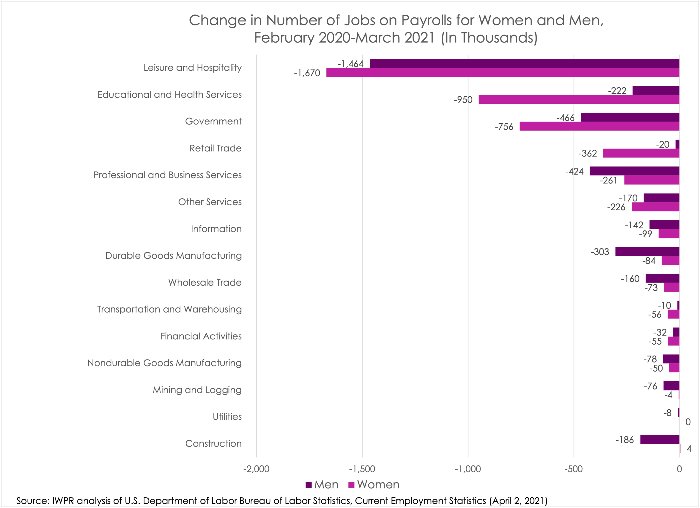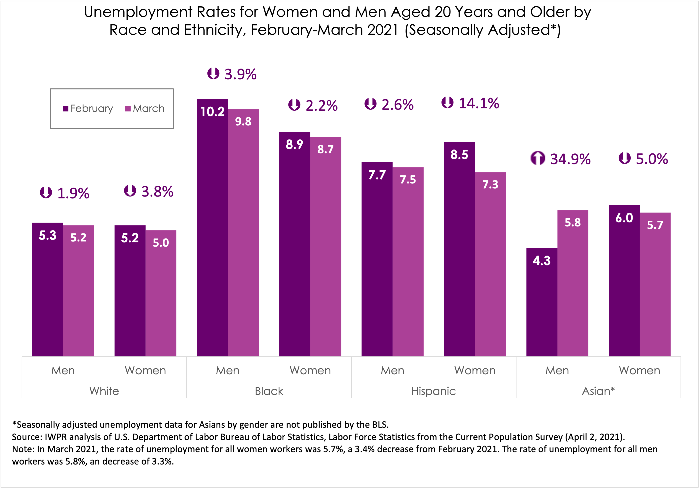Americans are getting back to work, but the job growth for men is much higher – almost double the rate than for women, according to the Institute of Women’s Policy Research (IWPR).
In fact, the gender jobs deficit is widening, and the unemployment rate for Black women and Latinas is still “unacceptably high”, confirmed IWPR. While new employment data for March 2021 from the US Bureau of Labor Statistics shows a 315,000 increase in women’s jobs on payroll (34.4% of all added jobs), IWPR’s analysis has revealed that the job growth is nearly twice as large for men than for women.
Men gained more jobs than women in almost all sectors, including in leisure and hospitality and government; sectors with a predominantly female workforce pre-Covid-19. In the financial sector, women’s jobs on the payroll declined by 8,000, while men’s increased (by 24,000).

RACIAL & ETHNIC EMPLOYMENT DISPARITIES
The new jobs data shows marginal improvement in the rate of unemployment for adult women (from 5.9% to 5.7%), and for adult men (from 6% to 5.8%). However, sharp differences remain by race and ethnicity.
In fact, women’s job losses have been compounded by racial and ethnic differences; with Black women experiencing the highest rate of unemployment among women at 8.7%, followed by Hispanic women at 7.3%. Asian women saw a drop in unemployment by 5% (from 6% to 5.7%). White women’s unemployment also increased slightly, from 5.2 to 5%.
HIGH UNEMPLOYMENT FOR LATINA/BLACK WOMEN
“Americans get back to work, but the recovery is not reaching all Americans,” stated C Nicole Mason, President and CEO of IWPR. “The unemployment rate for Black women and Latinas is still unacceptably high.”

The unemployment rate for Black women is still at 8.7% and 7.3% for Latinas. The rate of unemployment for Black women is 1.7 times higher than White women; and it’s 1.5 times higher for Hispanic women. Black women’s long-term unemployment increased by a disconcerting 54,000, compared to 20,000 for White women.

WIDENING GENDER GAPS
“The strong job growth is very encouraging, but the widening gender gaps in the recovery, and the fact that women’s long-term unemployment has continued to grow, is worrying,” commented IWPR’s Ariane Hegewisch. She noted that “once again, there was hardly any growth in employment in the childcare sector (by just 0.2%); and that childcare employment is still far below where it was in pre-Covid. “Without childcare, it will be very hard for women to come back to work on an equal basis with men,” added Hegewisch.
“As the numbers improve, this is a reminder that the recovery is not done until all Americans benefit,” added Mason. “These data show the support for working families in the infrastructure package is sorely needed; and needs to be enacted to reach kitchen tables and pocketbooks.”








































